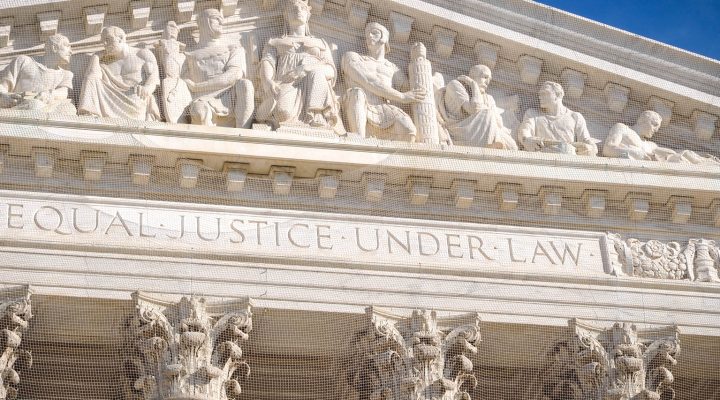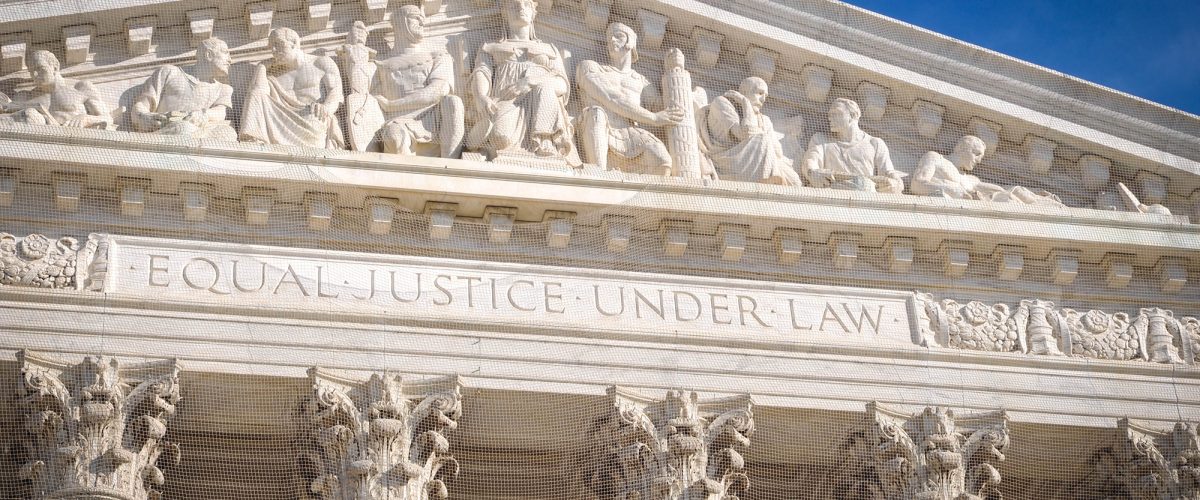A June 23 Supreme Court ruling affirmed the Biden administration’s prerogative to implement immigration rules limiting deportation actions to immigrants deemed national security or significant criminal threats.
The court’s 8-1 ruling in United States v. Texas found states do not have legal standing to sue the administration to force the deportation of a wider segment of the immigrant community.
The decision was a rebuke of Texas and co-plaintiff Louisiana for attempting to meddle with the constitutional balance of power between the executive, legislative and judicial branches of government.
“They want a federal court to order the executive branch to alter its arrest policies so as to make more arrests. Federal courts have not traditionally entertained that kind of lawsuit,” Justice Brett Kavanaugh wrote for the majority.
The case stemmed from a 2021 Department of Homeland Security memo directing Immigration and Custom Enforcement to limit its arrest and deportation efforts to immigrants deemed serious criminal or national security risks. It also directed ICE agents not to target undocumented immigrants residing in U.S. and not committing serious crimes.
In their suit, Texas and Louisiana argued the policy would create a significant financial burden on taxpayers and thus provide states with legal standing to file such actions. Two lower federal courts agreed, including one that issued a stay on implementing the rule.
But the high court disagreed, ruling instead the suit did not meet the test for legal standing set forth in Article III of the U.S. Constitution.
“This bedrock constitutional requirement has its roots in the separation of powers. So, the threshold question here is whether the states have standing to maintain this suit. Based on this court’s precedents and longstanding historical practice, the answer is no,” Kavanaugh wrote.
Texas Gov. Greg Abbott, who has regularly sparred with the White House on immigration and is notorious for busing immigrants from Texas to Democratic states and cities far away, took to Twitter to blast the decision: “This decision is outrageous. SCOTUS gives the Biden Admin. carte blanche to avoid accountability for abandoning enforcement of immigration laws. Texas will continue to deploy the National Guard to repel & turn back illegal immigrants trying to enter Texas illegally.”
In his lone dissenting opinion, Justice Samuel Alito argued the court’s decision grants excessive power to the White House and sets the stage for conflict between the executive and legislative branches. “And the court’s answer today is that the executive’s policy choice prevails unless Congress, by withholding funds, refusing to confirm presidential nominees, threatening impeachment and removal, etc., can win a test of strength.”
In its Sept. 30, 2021, memorandum, the administration argued that narrowing arrests and deportations to dangerous immigrants is a more efficient use of limited personnel and budgets.
“It is estimated that there are more than 11 million undocumented or otherwise removable noncitizens in the United States.”
“It is estimated that there are more than 11 million undocumented or otherwise removable noncitizens in the United States,” the memo said. “We do not have the resources to apprehend and seek the removal of every one of these noncitizens. Therefore, we need to exercise our discretion and determine whom to prioritize for immigration enforcement action.”
Besides, most undocumented, law-abiding immigrants are assets to the communities in which they live, the memo added. “In exercising our discretion, we are guided by the fact that the majority of undocumented noncitizens who could be subject to removal have been contributing members of our communities for years. They include individuals who work on the frontlines in the battle against COVID, lead our congregations of faith, teach our children, do back-breaking farm work to help deliver food to our table, and contribute in many other meaningful ways.”
The document also asserts the administration’s approach adheres to the principle of prosecutorial discretion. “It is well established in the law that federal government officials have broad discretion to decide who should be subject to arrest, detainers, removal proceedings and the execution of removal orders. The exercise of prosecutorial discretion in the immigration arena is a deep-rooted tradition.”
Immigrant rights groups welcomed the near-unanimous Supreme Court ruling.
“Presidential administrations should be able to set priorities in immigration enforcement. Focusing on public safety threats is crucial to our safety and security, as well as good governance,” said Jennie Murray, president of the National Immigration Forum. “It’s good news that the court recognized the executive branch’s purview in this case.”
Ultimately, it is up to Congress to establish meaningful immigration reforms, Murray said. “Congress, not the courts, should be the venue for open, solutions-focused dialogue about the improvements our immigration and border policies need.”
Efren Olivares, deputy legal director of the Southern Poverty Law Center, said the ruling represents a positive step on immigration: “Immigrants of all nationalities, backgrounds and walks of life are contributing members of our communities, and with finite resources the federal agencies tasked with enforcing immigration laws should be allowed to set common-sense, reasonable and lawful priorities.”


